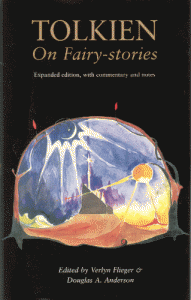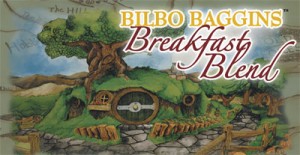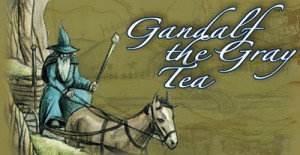An acorn woke up one morning, frustrated that he wasn’t sprouting. He pondered for a moment why he might not be growing, and decided that it was because he did not quite have enough experience in the wide world. The seed took himself out of the ground and made his way to a nearby village. He made it to the bustling little town square, where peasants were working hard, and merchants were selling exotic wares. On the public bulletin board, the seed noticed an interesting ad. It read:
Lost: Sir Cumfrence, Knight of the Round Table.
If anyone knows the whereabouts, or how to find Sir Cumfrence,
please contact town authorities. A reward will be offered.
Last seen around a point on the plain outside town.
“This is my chance!” exclaimed the seed, “I’m sure to gain a lot of realistic real-life experience by finding this ‘Sir Cumfrence’!”
An acorn woke up one morning, frustrated that he wasn’t sprouting. He pondered for a moment why he might not be growing, and decided that it was because he did not quite have enough experience in the wide world. The seed took himself out of the ground and made his way to a nearby village. He made it to the bustling little town square, where peasants were working hard, and merchants were selling exotic wares. On the public bulletin board, the seed noticed an interesting ad. It read:
Lost: Sir Cumfrence, Knight of the Round Table.
If anyone knows the whereabouts, or how to find Sir Cumfrence,
please contact town authorities. A reward will be offered.
Last seen around a point on the plain outside town.
“This is my chance!” exclaimed the seed, “I’m sure to gain a lot of realistic real-life experience by finding this ‘Sir Cumfrence’!”
So, the seed made his way outside town in a straight line to the point on the plain. Sir Cumfrence was nowhere to be found. The seed didn’t know what to do now. He sat and pondered how he might find Sir Cumfrence. Suddenly, he heard something rustling in the grass nearby. He jumped, startled, and glanced over to the grass. His heart stopped racing when he noticed what it was. He saw a little fuzzy angle with big, puppy-dog eyes and a tiny little smile.
“What a cute angle!” said the seed.
“Oh! Hello,” said the cute angle. “Yes, I suppose I am a cute angle. People have always called me a cute angle. I don’t suppose you could help me! You see, I’m lost. I corresponded for the longest time with a good friend of mine. He is an angle like I am, only he’s much wider and much less intelligent.”
The seed agreed to help, but asked something in return: “If I help you find your friend, can you help me find Sir Cumfrence of the Round Table?”
“Of course!” squeaked the cute angle.
And so they teamed up and looked all around the field for this fat, stupid angle that the cute angle called his friend. Finally, after hours of searching, the seed came across just the angle he was looking for!
The seed called to him, “You there! Angle! We were looking for you!”
The angle looked over to the seed and seemed confused. “Looking for me? Why would anyone be looking for me?”
“He’s a little obtuse, don’t you think?” said the seed to the cute angle.
“Oh, he’s quite obtuse, but I’ve corresponded with him for the longest time,” Explained the cute angle. “We hang out in the same circles, you see. And we’re in the same line of business.”
The obtuse angle hobbled over to the seed and the cute angle and greeted his friend. “You’re still a cute angle! I forgot!” cried the obtuse angle with excitement.
“Yes, and you’re still quite obtuse,” said the cute angle.
The obtuse angle scratched his head for a moment, and then said, “I don’t get it.”
After reunions and introductions were finished, the three turned their attention to the search for Sir Cumfrence.
The seed still did not know what to do, but the cute angle did.
“There is a giant named Ameter who lives in Castle Eeus in the mountains nearby. I saw him capture Sir Cumfrence and take him there. Ameter is notorious for trying to bake people into pies. We should go there at once!”
“So it’s settled,” responded the seed, “We must raid Eeus, and kill Ameter!”
And so, the seed, the cute angle, and the obtuse angle headed for the mountains. After walking for some time, they came to the gate of the huge castle, Eeus. At the gate, there were two triangles, who were arguing very animatedly.
“No!” cried one triangle. “He does not!”
The other looked calmly to the first, “Yes, he does bake people into pies.”
“That is impossible!”
“No, it is not. Let us go in, and I can show you.”
The seed approached the two triangles and asked, “What are you arguing about?”
“Whether or not Ameter bakes people into pies,” said the calm triangle. “Of course, he does, but my equilateral friend does not believe it.”
“I can assure you that he does!” piped the cute angle
“See?” said the calm one. “I am right. I’m always right!”
The equilateral frowned and asked in an exasperated tone, “Can I never be right!?”
“No. As long as you are equilateral, my friend, you can never be right,” said the right triangle. He then turned his attention to the seed and the two angles and said, “I suppose you are here to raid Eeus, are you not?”
The seed explained to the triangles what his plight was and the right triangle nodded understandingly. “Yes,” said the right triangle, “Ameter must die. The awful giant has been terrorizing the nearby villages for ages! We shall help you. I know where the secret entrance is.”
The seed and his geometrically-inclined friends crept around to the castle’s secret entrance and found themselves in the giant’s kitchen. There, in front of them, was a sword just the right size for the seed to wield. He picked it up and then looked around the room. The kitchen looked like any ordinary kitchen that the seed had seen, only it was much, much larger. Ameter, who was getting ready to put a pie into his oven, noticed the five adventurers.
“What do you think you’re doing here!?” yelled the giant. “I’ll have you as a snack!”
The giant charged for them with his rolling pin, ready to pound them. The seed stood firm and brandished his tiny sword. As the giant came closer, the seed slashed and thrust his blade forward.
With a bout of ferocity, the seed leaped forward with his arm outstretched, stabbed the giant through the heart and cried, “Die, Ameter!”
Ameter the giant fell to the floor and the five adventurers climbed onto the counter and went over to dead Ameter’s pie, in which was Sir Cumfrence!
“I am very grateful! You have saved me from being baked and eaten!” rejoiced Sir Cumfrence.
After the seed, the corresponding angles, the wrong and right triangles, and the knight himself returned to the village and celebrated the return of the great Sir Cumfrence of the Round Table, the seed went back home and planted himself into the ground again. He fell asleep with happy thoughts of success and a job well done. The next morning, he woke up and noticed that he was sprouting.
With great joy and excitement, the seed exclaimed, “Gee! I’m a tree!”


